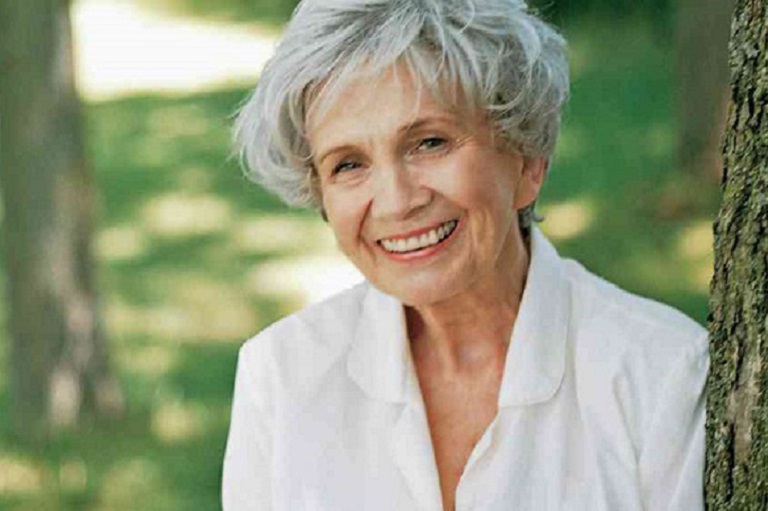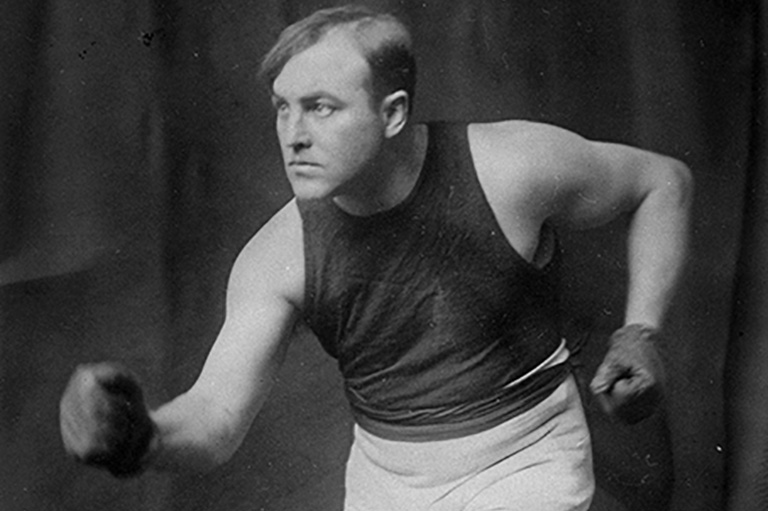Daughters of Confederation
The social events surrounding the conferences that led to Confederation included many unmarried women who had accompanied their fathers or brothers in hopes of finding a mate. Writer Anne McDonald wrote about one of them — Mercy Coles of P.E.I. — in the August-September 2014 issue of Canada's History magazine. Here is McDonald's article:
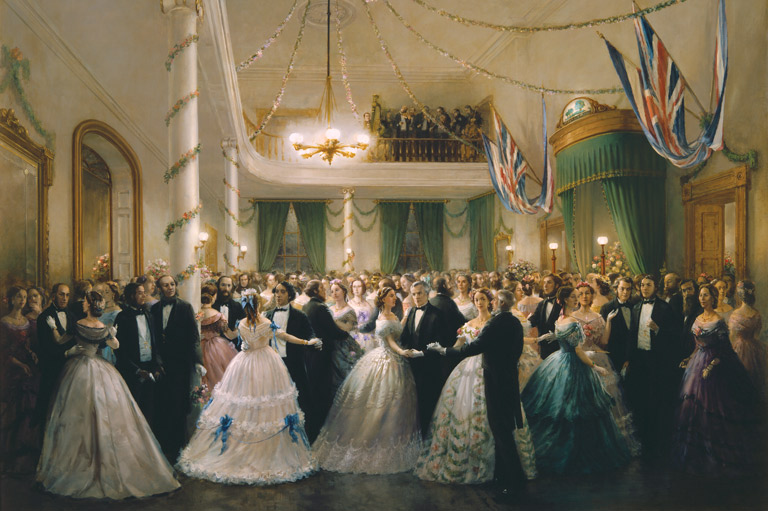
From a social standpoint, Canada’s journey to Confederation was quite a whirl. The September 1864 Charlottetown Conference was full of joie de vivre — buckets of champagne, lots of icebreaking, and plenty of making love in the old-fashioned sense. When the talks continued in Quebec that October, the socializing continued. And there were many young women about, because the Fathers of Confederation took along their unmarried daughters and sisters to, well, promote union of a different sort. Luckily for us, one of them kept a diary of her trip.
The Mercy Coles Confederation diary is everything such a document is supposed to be. It is part gossip: “The Misses Steeves [daughters of New Brunswick delegate William Steeves] seem to be the possessors of the parlour downstairs. I think they never leave it. There is a Mr. Carver who seems to be the great attraction. He is a beau of Miss Fisher’s [daughter of New Brunswick delegate Charles Fisher] but they monopolize him.”
It is part travelogue: “Here we are stopt in the road. Something is the matter with the engine. ... Such a thing did not happen before since we left home. The Grand Trunk is the line. I have not much faith in Yankee Railways.”
And it is part social commentary: “The Ball I believe was rather a failure as far as the delegates are concerned. The Quebec people never introduced the ladies nor gentlemen to any partners nor never seen whether they had any supper or not. The Col. Grays [Colonel John Ham- ilton Gray, premier of Prince Edward Island, and Colonel John Hamilton Gray, a lawyer and former premier of New Brunswick — yes, they had exactly the same name!] are both rather indignant at the way their daughters were treated.”
Mercy Coles, the twenty-six-year-old daughter of George Coles, Prince Edward Island’s Father of Confederation, wrote of her travels and of the events, balls, banquets, people, and whirlwind of social happenings and political manoeuvrings as they impacted her and her desires. Coles was the oldest single young woman (aside from Thomas Haviland’s widowed sister, Mrs. Alexander, who was forty) at the conference back when twenty-six was old to be single. Not surprisingly, Coles was very interested in the men, and many of them, including John A. Macdonald, were taken with her.
The diary has never been published, and yet without it Confederation history is incomplete. The Coles diary provides an intimate view of Canada’s movers and shakers of the time. It includes places and events that made up Canada’s social and cultural history.
While politics affected her, Coles was interested in something far different than the resolutions of the British North America Act. This young female traveller was keen on falling in love and finding a mate, and excited by travel and the lure of away.
As it turned out, her stay in Quebec City was a different kind of adventure from the one she had anticipated. Almost immediately after her arrival, she fell sick with diphtheria, a serious bacterial infection of the upper respiratory tract. In the nineteenth century, the disease was often fatal. Her sickness forced her to miss most of the balls, banquets, parties, and outings where she might have been wooed. However, her illness didn’t stop her from writing about the social side of the conference and recording the gossip; nor did it stop her from receiving lots of visitors — their ignorance of how the disease spread serving in this case to benefit history.
The Quebec Conference began on Monday, October 10, 1864. Coles and her parents arrived the Saturday before and remained in Quebec until October 26. Afterwards, they travelled with the other delegates and their families to Montreal, Ottawa, Toronto, and Niagara Falls to promote Confederation. There was ample opportunity for the women to court and be courted.
The first big evening in Quebec was an event known as the “drawing room,” hosted by Governor General Lord Monck in the Parliament Buildings on Tuesday, October 11. Coles attended, though she found it to be a long, drawn-out, and boring affair. On the upside, Coles happily wrote, “Mr. Tilley took charge of me and walked about with me the whole evening.” Samuel Leonard Tilley, the premier of New Brunswick, was a forty-six- year-old widower with seven children. Coles had met him during the train journey to Quebec and remarked earlier that he had helped her admire the scenery. But clearly she wasn’t his only object of attention: “It is rather a joke, he is the only beau of the party and with 5 single ladies he has something to do to keep them all in good humour,” Coles wrote. Nothing came of the mild flirtation, however; three years later, Tilley married Alice Starr Chipman, the daughter of a close friend.
The next big party was the governor’s ball on Friday, October 14. It was as she was getting ready for the ball that Coles fell sick: On Monday, October 17, she wrote: “Home all alone. I have not been able to leave my bedroom since Friday. ... I went to comb Mamma’s hair and nearly fainted. She made me lie down. I got so nervous and excited that I commenced crying. Papa went off for Dr. Tupper [Nova Scotia Premier Charles Tupper, who reportedly carried his doctor’s bag everywhere and at the conference did double duty as a physician].”
Coles’ illness brought her extra attention, though, and she received special condolences from many of the men, including John A. Macdonald, who at the time had been widowed for seven years. “Mr. Crowther [secretary to Province of Canada delegate Alexander Galt] has just called and left a comic newspaper for me with his compliments. He, Mr. Drinkwater [Macdonald’s secretary], and Mr. Bernard [Hewitt Bernard, secretary of the whole conference] call every day to enquire for me.”
With 7 uniquely curated newsletters to choose from, we have something for everyone.
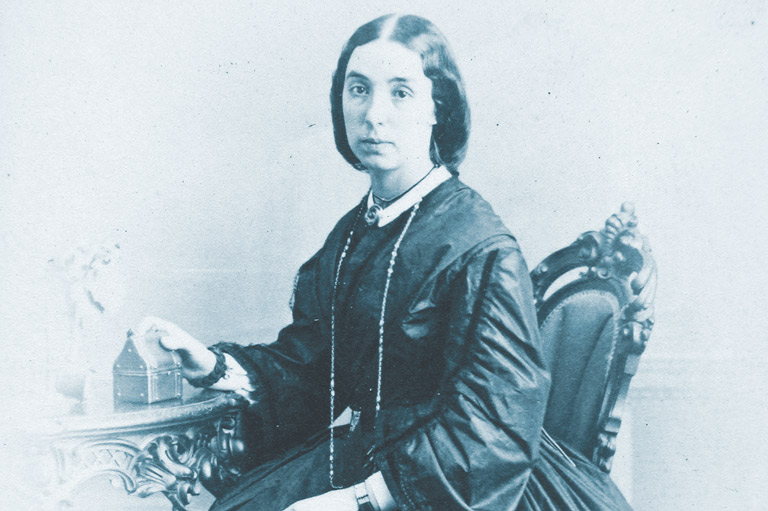
Not only did the delegates ask after her, they sent her their new “cartes de visite” — copies of studio portraits of themselves. “[Tilley] gave me such a nice carte of himself, all the gentlemen have been having their likenesses taken. Papa’s is only tolerable.” On October 25 she was confined to her room when Bernard came to dinner. “I was so disappointed when Ma told me. [Bernard] sent me his carte this morning. &ellip; I shall have quite a collection for every one of the gentle- men have had theirs taken.”
For their parts, the delegates knew it was important to treat the women of the conference well. Prince Edward Island delegate Edward Whelan wrote in his newspaper, the Examiner: “The Cabinet ministers — the leading ones especially — are the most inveterate dancers I have ever seen, they do not seem to miss a dance the live-long night. They are cunning fellows; and there is no doubt it is all done for a political purpose; they know if they can dance themselves into the affections of the wives and daughters of the country, the men will certainly become an easy conquest.”
Indeed, Mercy Coles’ own father was very energetic when it came to dancing his way to influence. She wrote: “They had a great Ball last night at Mde. Tessier’s [wife of Ulric Joseph Tessier, the Speaker of the legislative assembly of the Province of Canada]. Papa came home with every stitch of clothes wringing wet with perspiration. He says he never had such a time, the French ladies are the very mischief for flying round. John A. [Macdonald] and he saw Mde. Duval [wife of Justice Jean-Francois-Joseph Duval, Court of Queen’s Bench, Canada East] and her daughter home.” That George Coles should receive Macdonald’s attention isn’t surprising. P.E.I. was not sold on Confederation. On the day of the party at the Tessiers, the island’s delegates had repeatedly voted against the resolutions put forward.
P.E.I. was often the only province to vote no. By the eve of October 19, the island delegates were split on the question of representation by population. George Coles was on the side that believed rep by pop had been agreed upon in Charlottetown as the only way to proceed forward with Confederation. P.E.I. Premier John Hamilton Gray was clear on that, too, but his Attorney General, Ed- ward Palmer, disagreed, as did Thomas Haviland, another island delegate. William Pope, a strong supporter of Confederation, wasn’t there that evening. The P.E.I. delegates left to discuss matters amongst themselves and would vote in the morning. Thus, George Coles was in a position to sway the other P.E.I. delegates to vote in favour of the Canadians’ proposals — in this case, the highly contentious question of the number of representatives each province would have in the House of Commons.
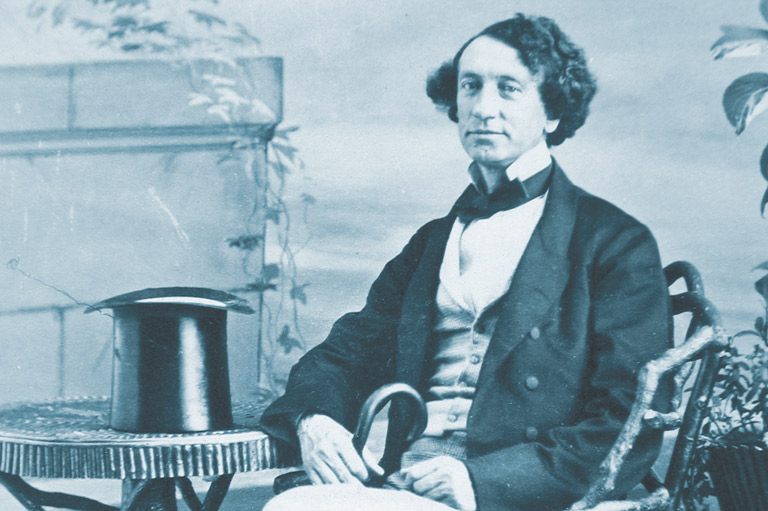
And so we have John A. and George Coles at the Tessierparty together and returning together. And we have John A. over the next week taking care to be there in Mercy Coles’ thoughts and writings. Indeed it is in this week that we hear more from Coles about Macdonald than we hear about him at any other time:
Saturday, October 22: “John A was making very kind enquiries about me last night, he told Ma he could not express how sorry he felt at my being ill.”
Wednesday October 26: “I went to dinner in the evening. John A. sat alongside of me. What an old Humbug he is. He brought me my dessert into the Drawing Room. The conundrum.”
Coles’ unspecified “conundrum” leaves one wondering just what was happening . George Coles must have been upset — would his daughter have known it, or known why? The week of October 19 to 26 would have been really hard on the P.E.I. delegates. Even so, the speeches that continued on the tour of the Canadas were very pro-Confederation. In Ottawa, George Coles compared it to a “proposed matrimonial union,” though he conceded that it was “in some respects not what some of them might have wished.”
As for Mercy Coles’ description of Macdonald, well, “old Humbug” doesn’t sound that attractive. Did she think Macdonald liked her romantically, while she wasn’t attracted to him in that way? She noted that he brought her dessert to her, which implies that she felt some level of intimacy or connection and that this is what brought up the “conundrum.” Did she feel a degree of obligation to return Macdonald’s feelings in order to help her father’s and P.E.I.’s desires for better terms? Was this a “come hither” by Macdonald that she didn’t quite know how to deal with?
October 26 was the last night of the conference in Quebec. Alexander Galt spent the day and evening presenting the financial resolutions, leaving out a proposal put forward at Charlottetown for money to buy out the island’s absentee landlords. George Coles later said, in the P.E.I. legislature, that he was “struck with amazement” that this was left out of the financial resolutions. This reneging on the money to buy out the landlords was pretty much the nail in the coffin for P.E.I.’s likelihood of going forward with Confederation. The P.E.I. delegates still spoke positively in speeches and clearly hoped things might change, but, in the end, this final action of the Canadians cemented island opinion against Confederation.
In a 1917 Charlottetown Guardian interview with Coles about her diary, fifty years after Confederation and fifty-three years after the Quebec Conference, Coles commented on the special room set aside for her in Montreal as they continued on the conference tour of the Canadas: “On arriving at the hotel [on October 27] I was surprised to find that I was the invalid for whom preparations had been made. Evidently Mr. Macdonald, who had always proved a very kind friend to me, had telegraphed ahead. I found the room, which had been assigned to me equipped with a large fireplace. They must have been somewhat astonished to see the invalid acting in such a sprightly way as I did.”
It’s hard to say whether John A. was simply courting Coles for political expediency or if he was truly interested. The former seems more likely, but Coles to some degree took his intentions seriously. One wonders, too, how and when Macdonald “had always proved a very kind friend.” This same “friend” wrote later to Premier Gray bidding him to say hello to those in P.E.I. Macdonald knew, “always excepting Messrs. Palmer and Coles,” since the latter were by then firmly opposed to Confederation.
By the time the party arrived in Ottawa, the stress of the conference was beginning to take its toll on Macdonald. He was supposed to have given a speech on November 1, but, as Coles wrote, “he was tight or had a palpitation of the heart and could not go on.”
When Macdonald didn’t show up in Toronto on November 4, as the party was leaving for Niagara Falls, Coles wrote: “I have not seen John A. since he came up in the carriage with us at Cobourg [November 2]. He did not appear at all yesterday. Mr. Bernard was at the station this morning to say goodbye. I told him to say everything kind for me to John A.” This seems to have been the end of the flirtation with Macdonald, who would go on to marry Bernard’s sister, Agnes, three years later. Bernard himself remained a lifelong bachelor.
Coles was perhaps naive. If Macdonald’s courting of her was only for political expediency, then she was fooled, or had fooled herself, into believing him. This makes Macdonald appear rather callous.
It’s fair to point out that even though Macdonald did go to Toronto he gave no speeches there. Nor did he go on any of the sightseeing events. He tended, once he started drinking, to continue until he passed out.
And if he hadn’t disappeared into drink, if he had continued his courting, and if Coles hadn’t been away sick, would Canada’s history have turned out differently? That’s difficult to say.
What we do know is that the Quebec Conference may have paved the way to Confederation, but it did nothing for Mercy Coles’ matrimonial prospects. She never did marry. She lived out her life in Charlottetown and died in her eighties.
We hope you’ll help us continue to share fascinating stories about Canada’s past by making a donation to Canada’s History Society today.
We highlight our nation’s diverse past by telling stories that illuminate the people, places, and events that unite us as Canadians, and by making those stories accessible to everyone through our free online content.
We are a registered charity that depends on contributions from readers like you to share inspiring and informative stories with students and citizens of all ages — award-winning stories written by Canada’s top historians, authors, journalists, and history enthusiasts.
Any amount helps, or better yet, start a monthly donation today. Your support makes all the difference. Thank you!
Themes associated with this article
Advertisement
Save as much as 40% off the cover price! 4 issues per year as low as $29.95. Available in print and digital. Tariff-exempt!

